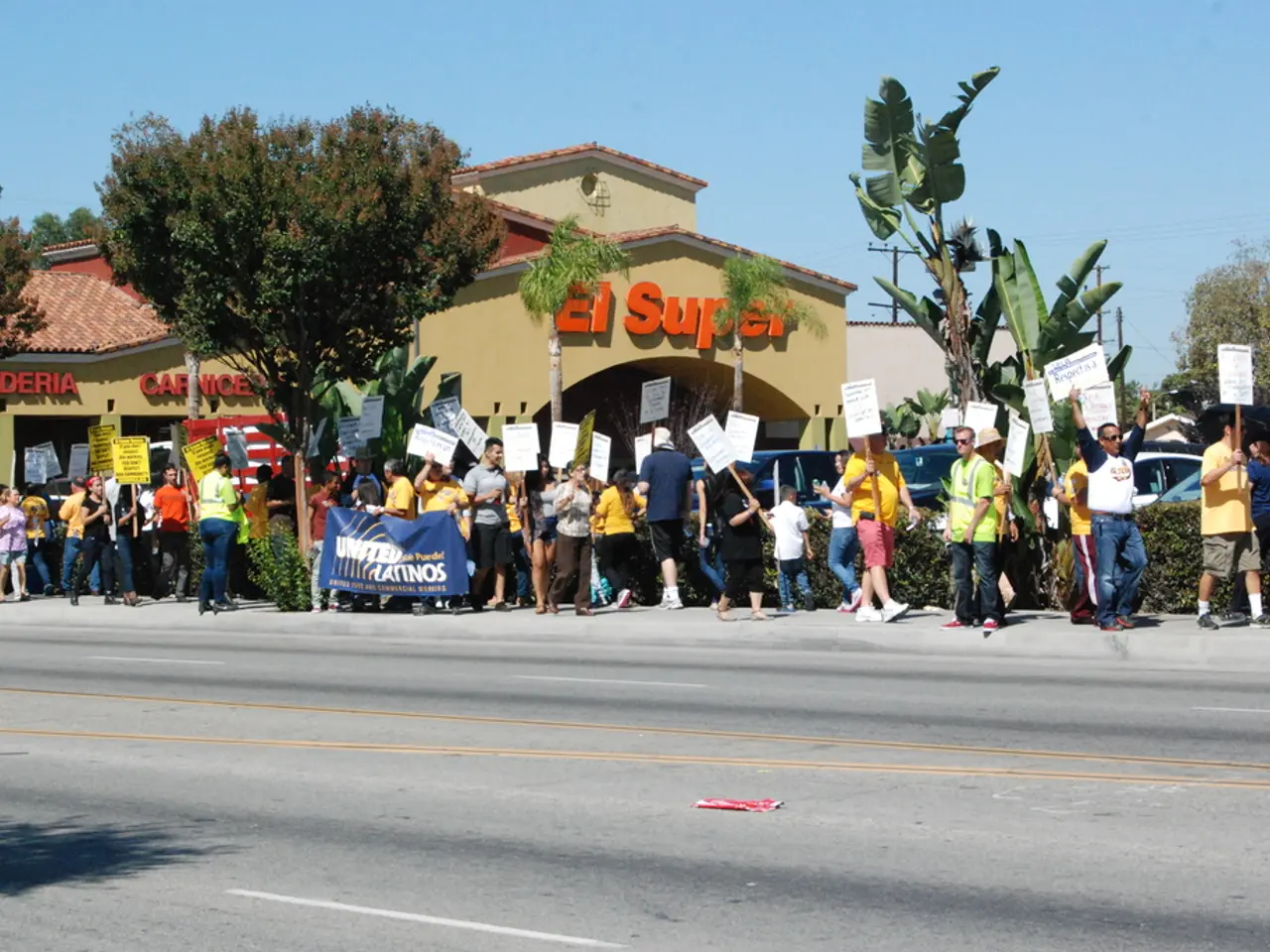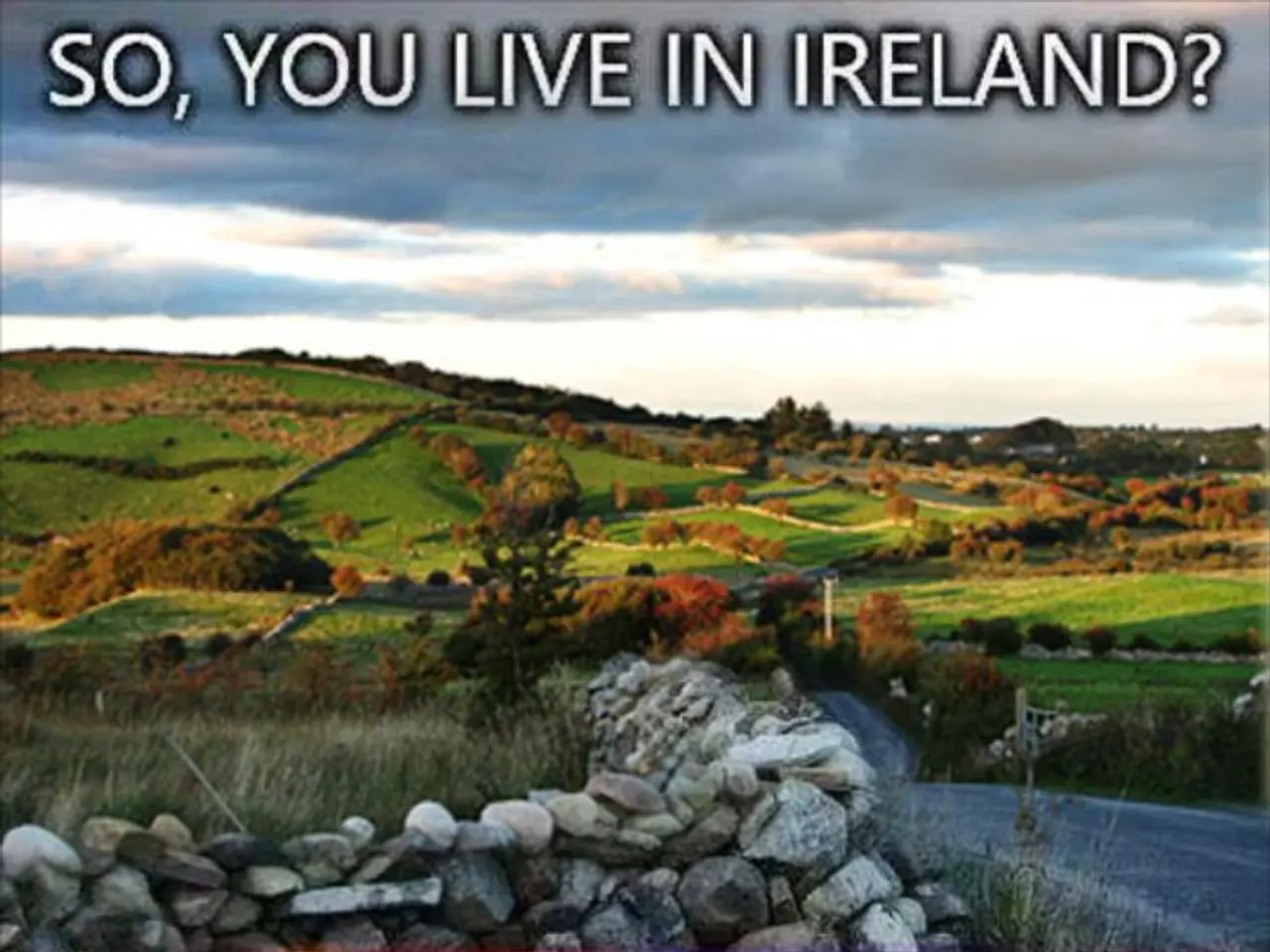U.K. Plans to Grant Voting Privileges to 16-Year-Olds in Parliamentary Elections - UK plans to grant voting eligibility for parliamentary elections to individuals aged 16
The UK government has announced plans to allow 16- and 17-year-olds to vote in parliamentary elections, a move that has sparked debate and controversy. Prime Minister Keir Starmer supports this decision, arguing that young people are old enough to work and pay taxes, and thus, should have the right to participate in decisions that affect their future.
However, critics accuse the government of self-interest, as newly enfranchised youth tend to vote more for the Labour Party. This concern has been fuelled by the fact that the government currently holds a comfortable majority in Parliament, which could facilitate the introduction of these changes.
The proposed changes, if implemented, would extend the franchise to 16-year-olds in all UK Parliamentary elections, a significant shift from the current system where only certain elections allow for 16-year-old voters. Currently, 16-year-olds can vote only in the Scottish Parliament and local government elections, the Scottish independence referendum, the Welsh Senedd (Welsh Parliament) elections, and local elections in Wales. In England and Northern Ireland, 16- and 17-year-olds do not have the right to vote in UK general elections, local elections, or most other polls.
The government's proposal is not unprecedented. Several countries worldwide, including Austria, Argentina, Brazil, Ecuador, and Cuba, already allow voting at 16 in parliamentary elections. Even within Europe, Germany allows 16-year-olds to vote in some state and local elections.
To address concerns about voter identification, the government plans to accept bank cards issued in the UK as identification in polling stations. Additionally, the government plans to introduce automated voter registration, similar to Australia and Canada, to streamline the voting process and increase participation.
The proposal to lower the voting age comes amidst concerns about low voter turnout in the UK. According to the Electoral Commission, around 750,000 people did not cast their vote in the Parliamentary Election of 2024 due to the photo ID requirement. The government's efforts to increase voter participation and democratise the process are aimed at addressing this issue.
However, the decision to lower the voting age is a contentious one, with many questioning the wisdom of giving such a significant responsibility to young people who are still in the process of maturing and forming their political views. The debate continues, with both sides presenting compelling arguments. As the government moves forward with its plans, it remains to be seen how this controversial decision will impact the political landscape of the UK.
The government's employment policy, as demonstrated by the proposal to lower the voting age, suggests a commitment to policy-and-legislation that focuses on empowering younger generations, aligning with the general trend of allowing 16-year-olds to vote in parliamentary elections in several countries. However, this decision in the realm of politics has sparked heated debate, with critics raising concerns about the maturity level of young voters and potential self-interest in increasing Labour Party support.








